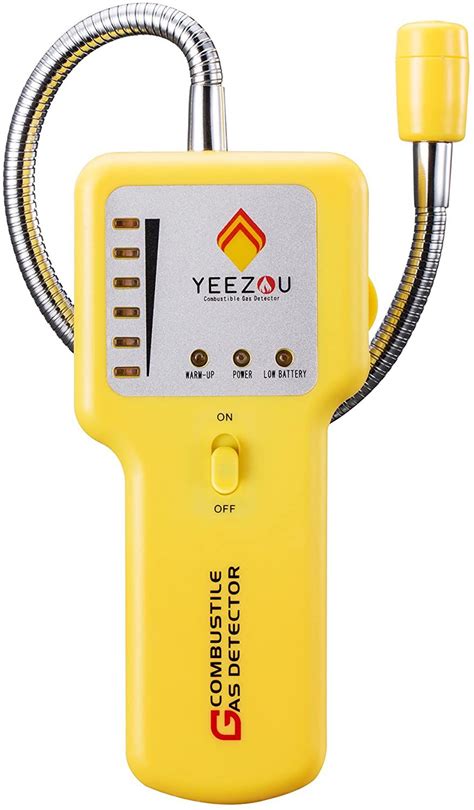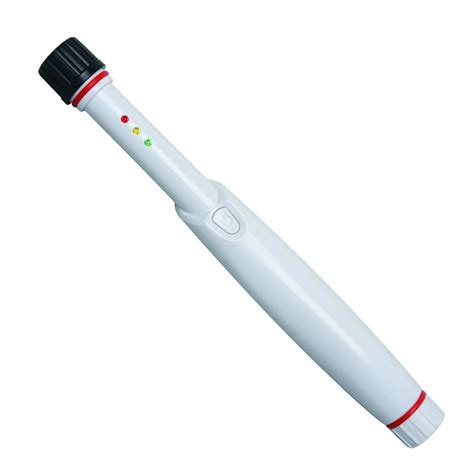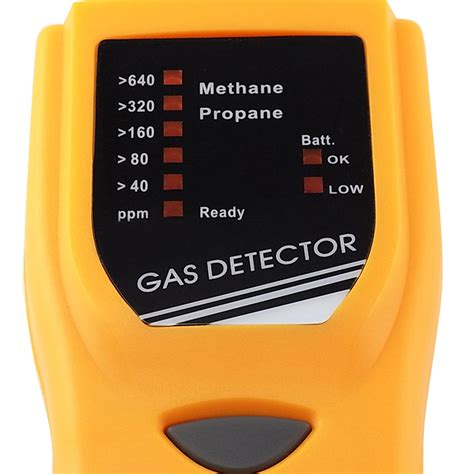Gas Leak Detector

Gas leak detection is a critical aspect of ensuring safety and preventing potential disasters in various industrial, commercial, and residential settings. In recent years, advancements in technology have led to the development of sophisticated gas leak detectors, offering enhanced sensitivity, accuracy, and real-time monitoring capabilities. This article aims to delve into the world of gas leak detectors, exploring their functionality, applications, and the significant role they play in maintaining a secure environment.
Understanding Gas Leak Detectors

Gas leak detectors are sophisticated devices designed to identify the presence of hazardous gases in an environment. They operate based on the principle of sensing and alerting users to the presence of gases that could pose a threat to human health or the integrity of the surrounding infrastructure. These detectors are equipped with advanced sensors that can detect a wide range of gases, including combustible, toxic, and asphyxiant gases.
How Do Gas Leak Detectors Work?
Gas leak detectors employ various sensing technologies, each tailored to detect specific types of gases. Some common sensing mechanisms include:
- Catalytic Sensors: These sensors use a platinum-based catalyst to detect combustible gases. When the gas comes into contact with the catalyst, it undergoes an oxidation reaction, generating a measurable current that triggers an alarm.
- Electrochemical Sensors: Ideal for detecting toxic gases, these sensors measure the current generated by the chemical reaction between the gas and the sensor’s electrode. The magnitude of the current indicates the gas concentration.
- Infrared Sensors: Employing infrared spectroscopy, these sensors can detect gases like carbon dioxide and methane. They measure the absorption of infrared light by the gas molecules, providing accurate concentration readings.
- Photoionization Detectors (PID): PIDs are highly sensitive to a broad range of volatile organic compounds (VOCs). They work by ionizing the gas molecules and measuring the resulting current, offering real-time monitoring capabilities.
Additionally, modern gas leak detectors often incorporate intelligent features such as digital displays, data logging, and wireless connectivity for remote monitoring and alerts.
Applications of Gas Leak Detectors

Gas leak detectors find applications across diverse industries and settings, each requiring tailored solutions to address specific gas hazards. Here’s an overview of some key applications:
Industrial Facilities
In industrial settings, gas leak detectors play a crucial role in preventing accidents and ensuring worker safety. These detectors are deployed in areas where hazardous gases are present or have the potential to accumulate, such as chemical plants, refineries, and manufacturing facilities.
- Process Monitoring: Detectors are used to monitor gas concentrations during various industrial processes, ensuring they remain within safe limits.
- Confined Spaces: Gas leak detectors are vital for detecting potential hazards in confined spaces like tanks, silos, and maintenance pits, where gas accumulation can lead to dangerous situations.
Commercial Buildings
Gas leak detectors are essential in commercial buildings to safeguard occupants and maintain a safe environment. Here are some key applications:
- HVAC Systems: Detectors can be integrated into heating, ventilation, and air conditioning systems to monitor for gas leaks, ensuring the air quality remains safe.
- Parking Garages: Carbon monoxide detectors are commonly used in parking garages to detect the presence of this odorless, toxic gas, which can accumulate from vehicle exhaust.
- Retail and Hospitality: Gas leak detectors are employed in restaurants, hotels, and retail stores to monitor for gases like propane and natural gas, ensuring a safe environment for customers and staff.
Residential Use
Gas leak detectors are increasingly being adopted in residential settings to enhance home safety. Here are some common applications:
- Kitchen Safety: Detectors can be installed near gas stoves and ovens to alert homeowners to potential gas leaks, reducing the risk of fires and explosions.
- Basements and Garages: These areas are susceptible to gas accumulation, making gas leak detectors essential for early detection and prevention of potential hazards.
- RV and Marine Applications: Portable gas leak detectors are available for recreational vehicles and boats, ensuring the safety of occupants during travel.
Performance and Accuracy
The performance and accuracy of gas leak detectors are critical factors in ensuring their effectiveness. Here’s a closer look at these aspects:
Sensitivity and Response Time
Gas leak detectors are designed to offer high sensitivity, allowing them to detect even trace amounts of hazardous gases. The response time, which refers to the detector’s ability to react to a gas presence, is a crucial factor. Modern detectors often have response times of just a few seconds, ensuring rapid detection and alerting.
Calibration and Maintenance
To maintain optimal performance, gas leak detectors require regular calibration and maintenance. Calibration involves adjusting the detector’s sensitivity to ensure accurate readings. This process is typically performed by trained professionals using specialized calibration gases.
False Alarms and Interference
While gas leak detectors are designed to be highly accurate, false alarms can occur due to various factors, including environmental conditions and interference from other gases. Manufacturers employ advanced algorithms and filters to minimize false alarms, ensuring the detectors remain reliable.
Future Implications and Innovations
The field of gas leak detection continues to evolve, driven by advancements in sensor technology and the increasing demand for safer environments. Here are some future implications and potential innovations:
Smart Gas Detectors
The integration of gas leak detectors with smart home and building automation systems is gaining traction. These detectors can be connected to central control systems, allowing for remote monitoring, real-time data analysis, and automated responses to detected gas leaks.
Wearable Gas Detectors
Wearable technology is being explored for gas leak detection, particularly in industrial settings. These compact, lightweight detectors can be worn by workers, providing continuous monitoring and immediate alerts in case of gas exposure.
Advanced Sensor Technologies
Researchers are continuously developing new sensor technologies, such as optical sensors and nanosensors, which offer enhanced sensitivity, selectivity, and reduced power consumption. These advancements promise to revolutionize gas leak detection, making it more efficient and accurate.
| Gas Type | Common Sensors |
|---|---|
| Combustible Gases | Catalytic Sensors |
| Toxic Gases | Electrochemical Sensors |
| Carbon Dioxide | Infrared Sensors |
| Volatile Organic Compounds (VOCs) | Photoionization Detectors (PID) |

How often should gas leak detectors be calibrated?
+Gas leak detectors should be calibrated at regular intervals, typically every 6 to 12 months, to ensure accurate readings. Calibration frequency may vary based on the detector’s manufacturer recommendations and the specific application.
Can gas leak detectors detect all types of gases?
+Gas leak detectors are designed to detect specific types of gases based on their sensing technology. While some detectors can detect a wide range of gases, others may be more specialized. It’s important to choose a detector suitable for the gases present in your environment.
Are gas leak detectors suitable for outdoor use?
+Yes, many gas leak detectors are designed for outdoor use and can withstand various environmental conditions. These detectors are commonly used in outdoor industrial settings, construction sites, and agricultural areas to monitor for gas leaks.



